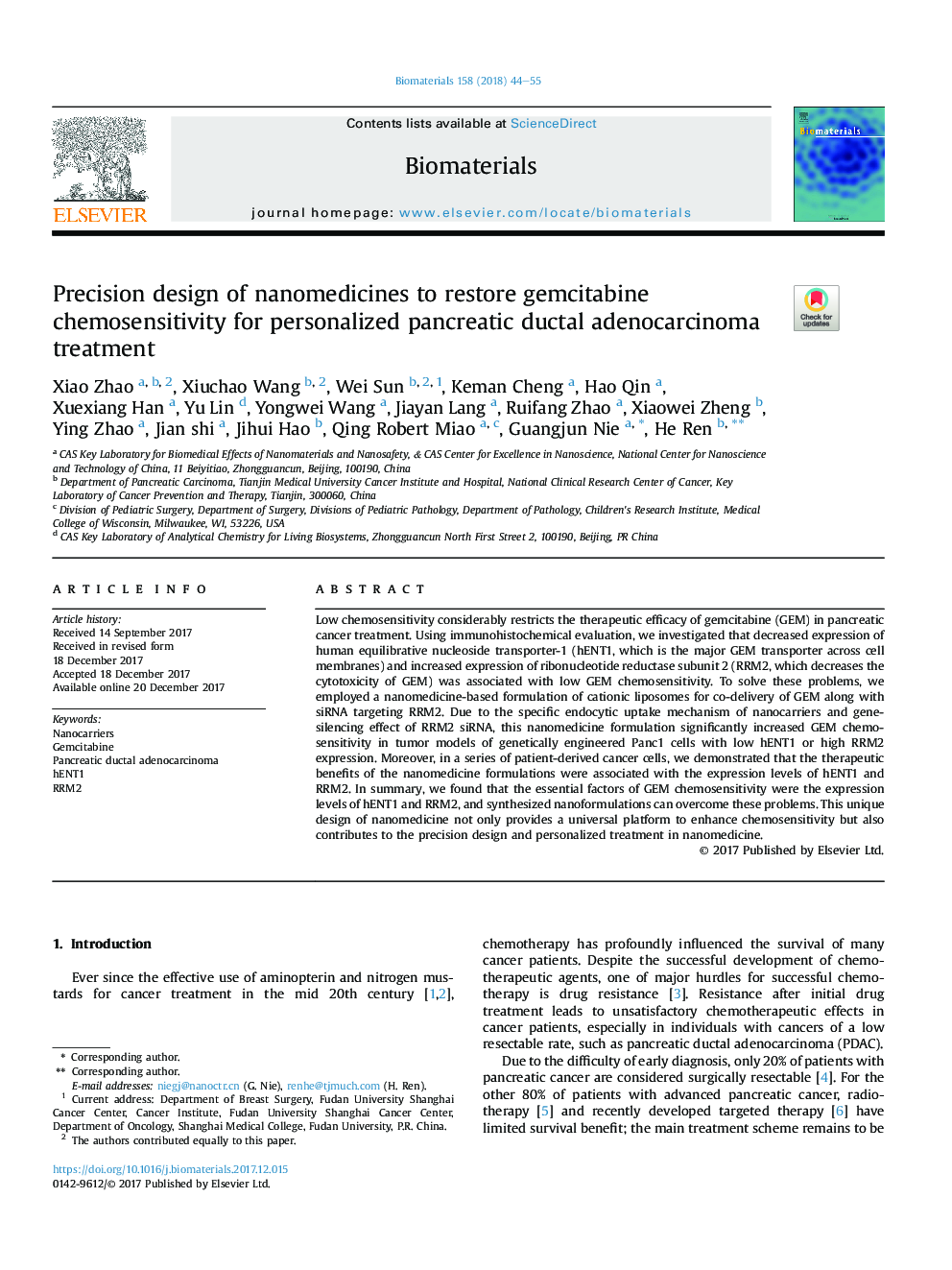| Article ID | Journal | Published Year | Pages | File Type |
|---|---|---|---|---|
| 6484685 | Biomaterials | 2018 | 12 Pages |
Abstract
Low chemosensitivity considerably restricts the therapeutic efficacy of gemcitabine (GEM) in pancreatic cancer treatment. Our clinical data showed that decreased expression of human equilibrative nucleoside transporter-1 (hENT1, which is the major GEM transporter across cell membranes) and increased expression of ribonucleotide reductase subunit 2 (RRM2, which decreases the cytotoxicity of GEM) was associated with low GEM chemosensitivity. We employed a nanomedicine-based formulation of cationic liposomes for co-delivery of GEM along with siRNA targeting RRM2. Due to the specific endocytic uptake mechanism of nanocarriers and gene-silencing effect of RRM2 siRNA, this nanomedicine formulation significantly increased GEM chemosensitivity in tumor models of genetically engineered Panc1 cells with low hENT1 or high RRM2 expression in vitro and in vivo. Moreover, in a series of patient-derived cancer cells, we demonstrated that the therapeutic benefits of the nanomedicine formulations were associated with the expression levels of hENT1 and RRM2. This unique design of nanomedicine not only provides a universal platform to enhance chemosensitivity but also contributes to the precision design and personalized treatment in nanomedicine.327
Related Topics
Physical Sciences and Engineering
Chemical Engineering
Bioengineering
Authors
Xiao Zhao, Xiuchao Wang, Wei Sun, Keman Cheng, Hao Qin, Xuexiang Han, Yu Lin, Yongwei Wang, Jiayan Lang, Ruifang Zhao, Xiaowei Zheng, Ying Zhao, Jian shi, Jihui Hao, Qing Robert Miao, Guangjun Nie, He Ren,
